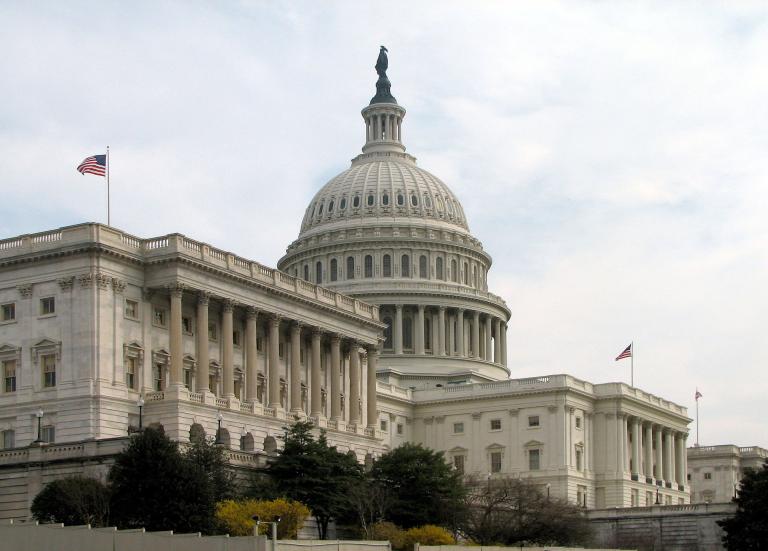
I don’t know for certain what happened — or what didn’t happen — nearly four decades back between teenage Brett Kavanaugh and teenage Christine Blasey Ford. Exactly what happened may be unknowable. Perhaps Dr. Ford really knows, although it’s possible that even she was too inebriated at that alleged party thirty-six years ago to be genuinely sure. It’s likely that Judge Kavanaugh really knows — although, if he was even present at all, he too may have only foggy memories of a drunken party that occurred back toward the beginning of Ronald Reagan’s first presidential term.
Johnny Carson hosted the Academy Awards that year. Chariots of Fire won best picture. Olivia Newton-John’s “Physical” topped Billboard’s year-end charts.
It’s been a while.
But some things can still be said.
Many women and more than a few men have spoken up in support of the allegation that has been leveled against Judge Kavanaugh. I wonder how they can do so. No new evidence has been presented, so far as I’m aware. How can they possibly know?
Some claim to speak with authority because they themselves have been victims of sexual assault. But, while I’m sympathetic to them, I don’t see the logic of their declarations. If my house was burglarized — as, in fact, mine was, a number of years ago — does that confer some mysterious ability upon me to determine, without trial or even seeing any evidence, whether any particular person is a burglar?
Some have said that drunken parties and aggressive male sexual behavior were common at the school that Brett Kavanaugh attended. And that may be true. (It was arguably true at mine, too.) But that goes precisely no distance toward establishing that Brett Kavanaugh, specifically,was guilty of drunken sexual assault. (I never took drugs, never drank a drop of alcohol — and, I’d better say this explicitly in an attempt to forestall my less scrupulous critics from suggesting that I’ve admitted otherwise — never assaulted anyone, sexually or in any other way while in high school. (And, for that matter, neither before or since then.) Isn’t judging individuals on the basis of group stereotypes — whether we’re talking about women, blacks, Jews, or, yes, high school student bodies — one of the intellectual and moral sins that our time is supposed to guard most vigilantly against?
Some have complained that the majority of the Senate, and of the Senate Judiciary Committee, is made up of old white men, who should presumably play little or no role in assessing the merits of a complaint leveled by a woman against a man. Senator Mazie Hirono (D-HI), for example, disgraced herself by saying “to the men of this country: Just shut up and step up. Do the right thing for a change.” She continued by declaring that “Not only do women like Dr. Ford, who bravely comes forward, need to be heard, but they need to be believed. They need to be believed.” I say that Senator Hirono disgraced herself, but her attack on males and on the rules of justice that have governed our nation since its inception drew rapturous applause from a disheartening number of her fellow extremist ideologues. Do we really want to make this a war of men against women and women against men and a death struggle between generations? Isn’t this is a question of facts, inferences, and probabilities, rather than gender solidarity? Shouldn’t it be?
By the same token, the fact that I’ve been baselessly and maliciously smeared online pretty much daily for at least a decade — my character maligned, flat untruths anonymously invented and posted about me — invests me with absolutely no special ability for discerning that, in Brett Kavanaugh’s case, the allegation against him is nothing but a malevolent lie.
As I say, I do not know, and likely cannot ever know, what may have happened or may not have happened, when Christine Blasey and Brett Kavanaugh were adolescents. All that we can do is to go by the preponderance of the (very sparse) evidence, exercising reasonable doubt, and — this is crucial, even though we’re talking about a Senate vote rather than a criminal trial — with the presumption of innocence.
Do I think that Dr. Ford is lying? No, I don’t. It’s possible, of course, but she’s probably not. I expect that she’s sincere. Does that mean that what she alleges against Judge Kavanaugh is true? No. Not necessarily. There are a number of ways in which she could be sincere but wrong.
On balance, I’m inclined to stand with Andrea Bottner: “I Stand with Brett Kavanaugh”
But, unless Christine Blasey Ford were to come forward and announce that she had frankly made it all up out of whole cloth, Brett Kavanaugh will be tainted for the rest of his life. There will always be doubt. Some will be certain that he’s guilty. Some will be certain that he’s innocent. Most will be somewhere on the spectrum where I am.
This is becoming unspeakably ugly:
“Yes, Rejecting Kavanaugh Now Would Disgrace Him”
In many ways, it’s now worse than the Robert Bork hearings and the Clarence Thomas hearings. It’s total war:
“Democrats float more Kavanaugh investigations, impeachment even if he is confirmed”
I do want to say, though, that, although I don’t really know how to decide with absolute certainty and confidence between Judge Kavanaugh and Dr. Ford, I think it beyond reasonable question that Senator Diane Feinstein behaved very poorly in all of this:
And this, too: Dr. Ford’s demand that she be allowed to testify against Judge Kavanaugh after he has given his testimony, and, practically speaking, that he should be allowed no opportunity to respond under oath nor even to be in the room with (and, thus, to face) his accuser, is outrageous and should be rejected.
“The Demands the “Ford Team” Has Made Are Ludicrous”
The so-called “Confrontation Clause” of the Sixth Amendment to the Constitution of the United States declares that, “in all criminal prosecutions, the accused shall enjoy the right . . . to be confronted with the witnesses against him.” This is generally taken to mean that the accused person has the right to confront the witnesses who are offering testimonial evidence against the him or her face to face. Often, this takes form of cross-examination during a trial.
Moreover, the Fourteenth Amendment to the Constitution makes that right to confront one’s accuser incumbent upon the states, as well as the federal government.
The Confrontation Clause grows out of both English common law and Roman law, which guaranteed persons accused of a crime the right to look their accusers in the eye and, where appropriate, to cross examine them.
“It is not the manner of the Romans,” explains the Roman governor of Judea, Porcius Festus, at Acts 25:16, “to deliver any man to die, before that he which is accused have the accusers face to face, and have licence to answer for himself concerning the crime laid against him.”
In Shakespeare’s Richard II I.i, the king summons Henry Bolingbroke (the future King Henry IV) and Thomas Mowbray, whom Henry has accused of treason, to appear before him, where
face to face,
And frowning brow to brow, ourselves will hear
The accuser and the accused freely speak.
Now, granted, the constitutional right to confront one’s accuser applies strictly, in the United States, only to formal criminal prosecutions. But elementary justice and fairness and basic morality strongly urge that such a right should be granted as widely as possible, including hearings related to an appointment to the Supreme Court of the United States.
As Andrew McCarthy rightly observes, this has become a kangeroo court.
But it’s not really very funny:
“Democrats, Kavanaugh, and ‘The End of Civilization’”












